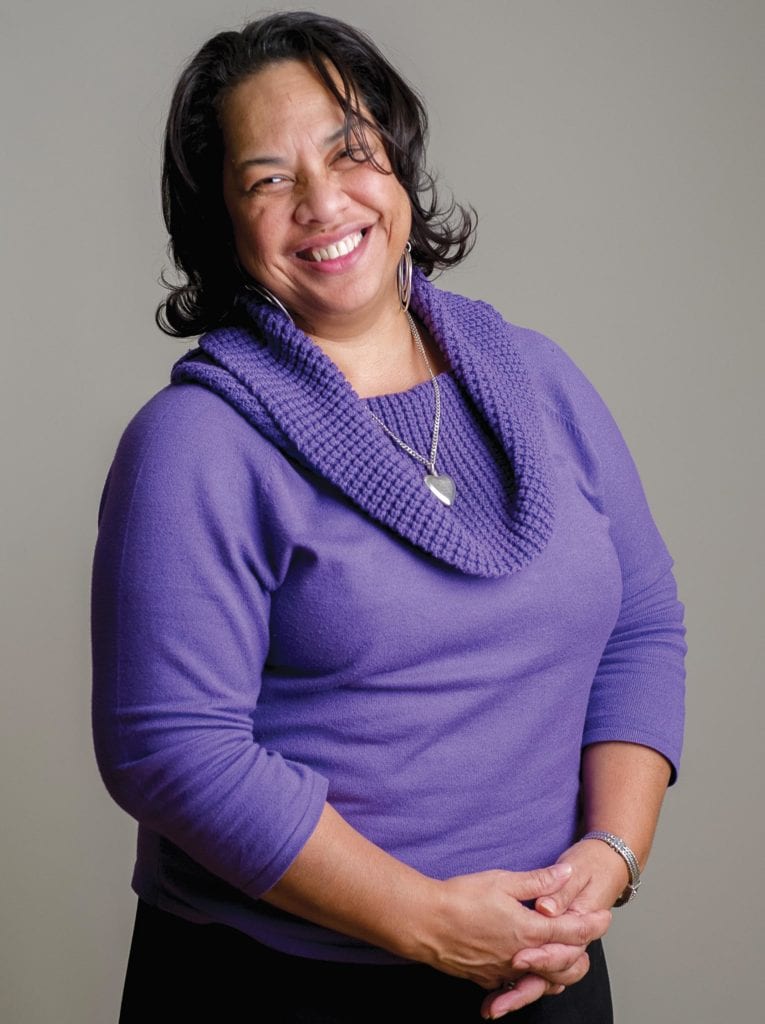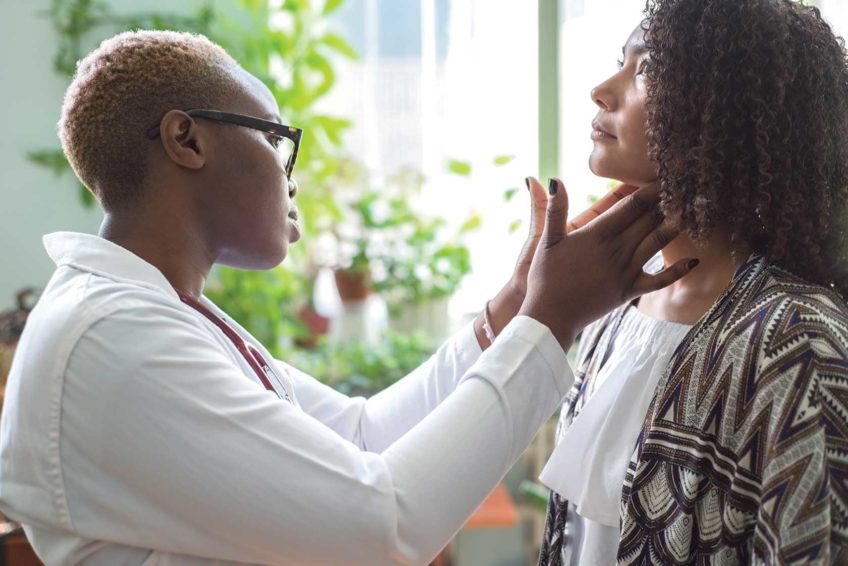
When Venatia Gilmer-Jones was diagnosed with breast cancer some ago, it was not her first encounter with breast surgery. At the age of 15 a benign tumor was removed from her right breast. This time around the diagnosis was not as favorable. The cancer that had metastasized, or spread, to the lymph nodes. Surgery was accompanied by chemotherapy and radiation.
Her case, however, caused her oncologists at Dana-Farber Cancer Institute to take a closer look. Age was a trigger. Gilmer-Jones was diagnosed at 46, while the median age at diagnosis for breast cancer is 62, according to the National Cancer Institute. Her family history was another red flag. Two aunts had breast cancer; another had lung cancer. A cousin was diagnosed with ovarian cancer; another with cancer of the prostate. More significantly, however, is that first-degree relatives — her parents — were also stricken. Gilmer-Jones’s mother died of lung cancer, and her father survived colon cancer, but eventually succumbed to cancer of the pancreas.
Her doctors recommended genetic testing, and after counseling, she agreed. The blood test showed that she had a mutation in the BRCA2 gene, which is actually a tumor suppressor. In other words, its job is to prevent cancer. It repairs damaged genes and prevents unnecessary production of cells, both of which can result in the disease. When the gene is turned off, or is ineffective, cells can run amok.
But the damage from a mutation in BRCA2 is not confined to the breast. It is linked to cancers of the ovaries, prostate, pancreas and lung — all cancers present in Gilmer-Jones’s family.
Because of these results and another cancer that invaded her remaining breast, Gilmer-Jones underwent a second mastectomy as well as a total hysterectomy. That was more than 10 years ago, and since then, all is well. She sees her oncologist every six months and undergoes regular MRIs.
Gilmer-Jones acknowledged that some people are afraid to get tested, and sympathizes with those who refuse because of fear and confusion. But she did not hesitate. “I had become so unhealthy, I wanted to know,” she explained. “It’s better to know, then decide what you want to do. Treatment might not be necessary.”
She has taken stock of her situation and adopted a comprehensive approach to prevent or at least reduce the risk of further problems. She knows that she has an errant gene over which she has little control. What she can control, however, is her lifestyle. According to the American Cancer Society, more than 40 percent of cancer cases are linked to modifiable risk factors.
She quit smoking — a wise decision. Cigarette smoking is the leading preventable cause of death in this country. Forty percent of cancers diagnosed in the U.S. may have a link to tobacco use, according to Centers for Disease Control and Prevention. She used to drink, but one is more than enough now. Veggies have become her passion. “If I have eggs, I add veggies,” she said. When she makes soup, she tosses in veggies. For dinner — fish and veggies. Whole foods, such as fruits, veggies and whole grains, contain cancer-fighting substances called phytochemicals.
She knows that obesity is a risk factor for cancer, and has trimmed her weight by 23 pounds. She admits that she was a stress eater. “I ate bags of candy,” she confessed.
The U.S. Health and Human Services recommends engaging in at least 30 minutes of moderate-intensity physical activities, such as walking, every day. Studies have shown that physically active people have a lower risk of colon, breast and uterine cancer. Gilmer-Jones has taken this advice to heart, but she hasn’t joined a gym. She developed her own routine. Her sister gave her a Google Assistant as a gift. Gilmer-Jones says “Hey, Google — play Earth, Wind and Fire.”
And then she dances.






